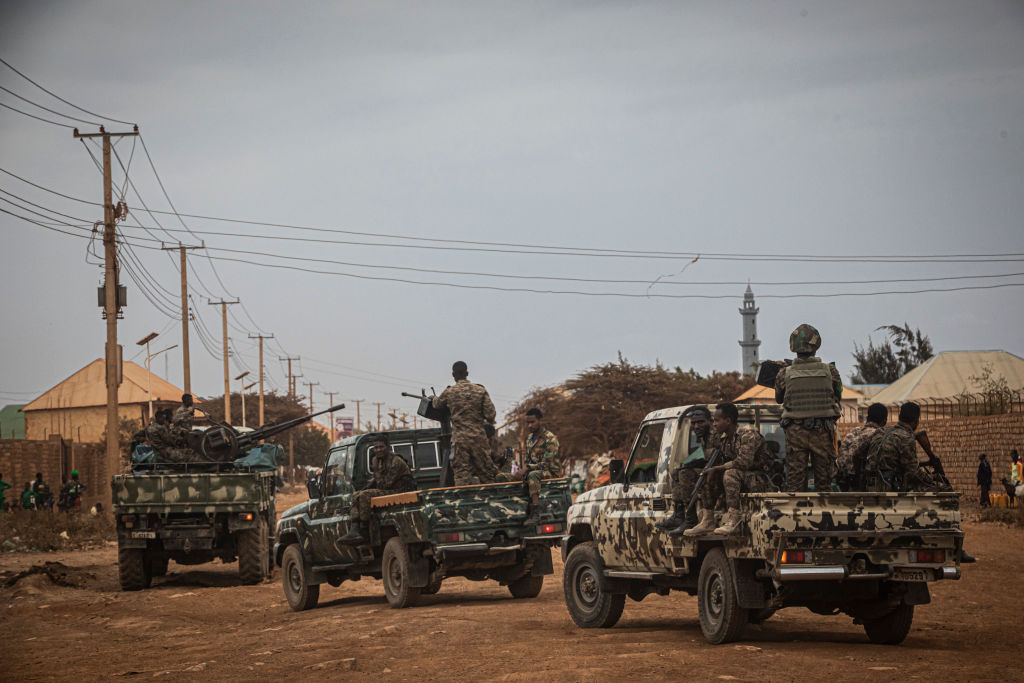ADF STAFF
Terror is at a boiling point in certain parts of the African continent.
According to the 2022 Global Terrorism Index, Sub-Saharan Africa accounted for 48% of global terrorism deaths in 2021. In the Lake Chad Basin, Somalia, Mozambique and parts of the Sahel, the problem has persisted for years and may be worsening.
Using Nigeria as an example, South Africa-based terrorism analyst Jasmine Opperman said violent extremist groups are diversifying, expanding and advancing. She said the Islamic State group in West Africa Province (ISWAP) is a growing problem.
“Boko Haram is not the same as we have seen a few years back,” Opperman told Fox News Digital. “Many of the fighters crossed over to ISWAP, and we are seeing the ISWAP now even reaching into the Abuja area, the capital of Nigeria.
“It’s this geographical expansion as far as Abuja that remains a concern.”
Observers say it is time for the African Union (AU) to make substantial changes to the strategy it employs against the scourge of violent extremisms.
Since its inception, the AU has authorized and mandated at least 27 Peace Support Operations. But its own African Standby Force (ASF) has been bogged down since the AU was founded in 2001.
Bureaucracy and myriad complex challenges such as logistics and funding have prevented the ASF from achieving many of its goals for operational capacity.
The Institute for Security Studies (ISS), a think tank based in South Africa, recently urged the AU to get more involved by leading a cohesive security strategy for the continent.
“Given the increasing complexity of the situation and a clear trend towards terrorist expansion in parts of Africa previously spared, the AU’s role is crucial,” ISS wrote in a report published on October 21.
“Drawing on its experience in Somalia and the Lake Chad Basin, the AU’s security bodies should assess the current threats and upgrade their responses accordingly. This implies a consolidated approach that aims to stabilize affected regions, focusing on the military and the socio-political sources of violent extremism.”
In a three-day AU meeting that commenced on November 1, heads of state showed a renewed interest in forming an independent force capable of rapid intervention as well as peace building.
Bankole Adeoye, AU commissioner for Political Affairs, Peace and Security, told reporters the AU is working with regional economic communities and other regional mechanisms as its first responders.
Among the regional military collaborations cited as examples of success: the Multi-National Joint Task Force (MNJTF) fighting Boko Haram in the Lake Chad Basin, the Accra Initiative working to defend Gulf of Guinea states from the southward creep of the Sahel’s insurgency, and the African Union Transition Mission in Somalia.
“We are using this forum to unpack the MNJTF as a model for the rest of the continent where the coalition of the willing come together for kinetic action,” he said.
“Terrorism cannot be defeated overnight, but it is important that member states commit to robust response, commit to deepening democracy at the time and commit to collective security.”
Adeoye said the AU is committed to creating a financing method that is sustainable and predictable.
“One of the mechanisms that the African Union has put forward is the AU Peace Fund,” he said. “It is currently at the tune of over $321 million and it is going to be used based on the budgetary processes of AU for member states to tap in and put resources together.
“We have to do it ourselves. That is why for the counterterrorism efforts we must focus on African solutions to African problems.”
Nigerian President Muhammadu Buhari, whose country has faced repeated terror attacks and increasingly angry citizens, pushed for the AU to immediately bolster troops fighting in and around his country.
“It behooves on us as the Assembly of the African Union to show the political will and forge a Coordinated Continental Approach to tackling insecurity,” he said during the meeting. “We must entrench peace and stability on our continent.”

